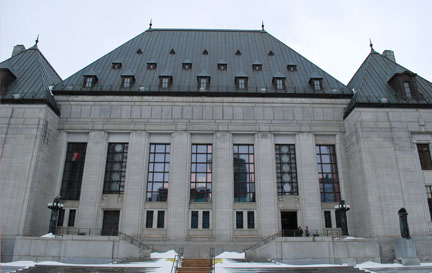

The gravity and seriousness of a case — even one relating to sex crimes against children — cannot be used to justify unreasonable delay at trial, according to the Supreme Court of Canada.
It’s one of the more controversial aspects of a new legal framework issued today by the court for assessing whether a delay is unreasonable under the Charter.
In Jordan v. R., a drug-trafficking conviction was challenged due to a 44-month delay between the charge and ultimate conviction. In a ruling written by justices Michael Moldaver, Andromache Karakatsanis, and Russell Brown, on behalf of a unanimous nine-judge panel, the court sides with the defendant in ruling that his constitutional right to a reasonably timely trial had been violated.
More importantly, the court took the opportunity to rewrite the rulebook on delays, noting that the framework based on Morin v. R. had contributed to a culture of complacency, where rationalization about whether the delay caused true prejudicial harm could be used to excuse a delay.
In its place, the court has created a framework (the Jordan framework) that sets a “presumptive ceiling” for delay of 30 months — above which the burden will now fall on Crown prosecutors to prove that the delay was a result of exceptional complexity or unavoidable circumstances.
The court, however, leaves it to judges to determine the “exceptionality” of the delay:
As the decision states, “It is obviously impossible to identify in advance all circumstances that may qualify as exceptional for the purposes of adjudicating a s. 11 (b) application. Ultimately, the determination of whether circumstances are exceptional will depend on the trial judge’s good sense and experience.”
The ruling does, however, provide guidance to the courts and specifically rules out justifications based on chronic institutional delay, the gravity of the offence, or absence of prejudice.
As the decision states, “An exceptional circumstance is the only basis upon which the Crown can discharge its burden to justify a delay that exceeds the ceiling. The seriousness or gravity of the offence cannot be relied on, nor can chronic institutional delay. Most significantly, the absence of prejudice can in no circumstances be used to justify delays after the presumptive ceiling is breached.”
While the ruling in Jordan was unanimous, the one in companion case R. v. Williamson split 6-3 on the matter of societal interest.
This case dealt with historical sex offences against a minor. The trial lasted 35 months — above the presumptive ceiling — leading the majority at the SCC to uphold the appeal court decision to stay the proceedings on constitutional grounds.
The conviction, moreover, could not be saved by an argument for exceptional circumstances. The decision, also written by Moldaver, Karakatsanis, and Russell, states:
“Although W did not suffer significant prejudice, the case was simple, the Crown did little to combat the substantial institutional delay, and W was reasonably proactive in attempting to move the matter along. Therefore, while the crimes committed by W are very serious, the balance weighs in favour of his interests in a trial within a reasonable time, over the societal interest in a trial on the merits.”
Justice Thomas Cromwell offers dissent on this point (with justice Richard Wagner and Clément Gascon concurring). In his dissent, he argues that the gravity of the allegations may create pressure on the justice system that contributes to the delay:
“The new framework does not permit the sort of balancing of interests that is inherent in the concept of reasonableness,” he writes. “In this case, staying these charges would be more publicly disreputable for the administration of justice than tolerating an inordinate trial delay.”